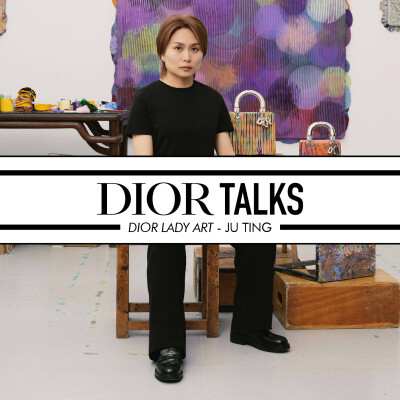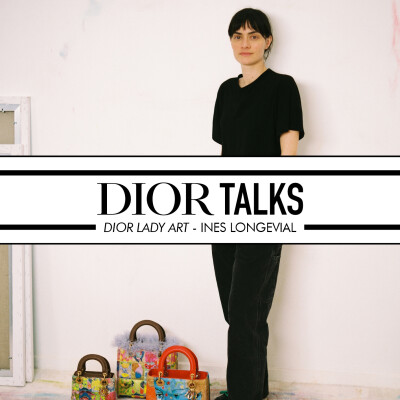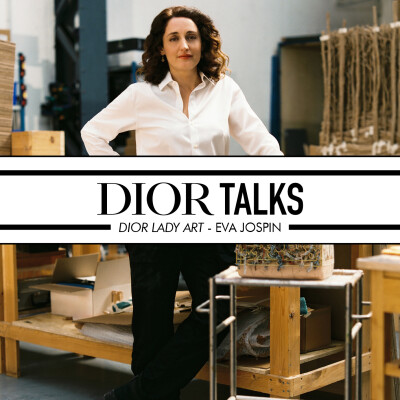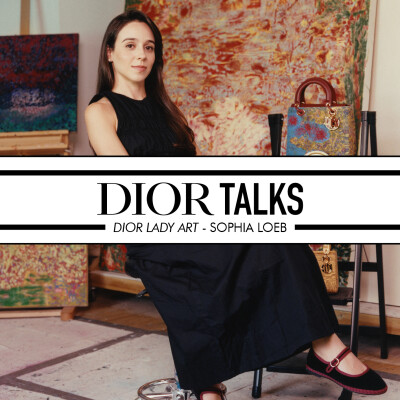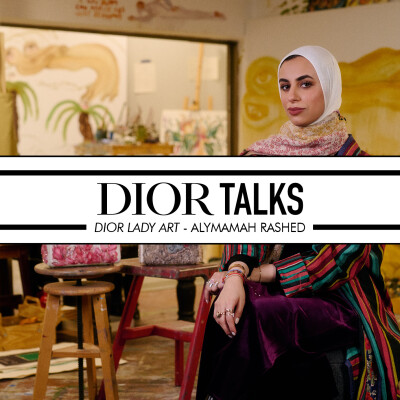Description
Welcome to this fifth episode of Dior Talks. This podcast series will explore the connections between Creative Director of Women’s collections Maria Grazia Chiuri and contemporary women artists and curators.
In this episode, series host Katy Hessel, a London-based curator, writer and art-historian, talks to Tomaso Binga about her long and influential career as a feminist conceptual artist, in the wonderful setting of the seminal Galleria Il Mascherino in Rome.
Tomaso Binga was born Bianca Pucciarelli in Salerno, southern Italy, in 1931. At the age of 18 she left her hometown and moved to Rome and she started making art in the 1960s. She was first asked to exhibit her work in a gallery setting in 1971 and was initially wary of exposure, preferring to leave art world recognition to her critic husband. However, she overcame her reticence and proceeded to create and exhibit a series of highly controversial and provocative works.
The alter ego came about in the early 70s, when she decided to take a man’s name as a statement about the deeply ingrained sexism of the art world and indeed the world at large. The name was an homage to Marinetti, the surrealist poet whose work has been a lifelong inspiration for Binga. ‘Tomaso Binga’ was created as a challenge to men and their hegemonic status.
Binga is best known for her seminal Alphabet works of the 1970s, in which she used her own naked body to form the letters of the alphabet – which was used as part of the scenography of the Dior Autumn-Winter 2019 show – and her 1977 performance, Just Married, when Bianca Menna married her male pseudonym Tomaso Binga.
She has been a major influence on generations of women artists. She was a Professor at the prestigious Academy of Fine Arts in Frosinone and is a vice president of the Filiberto Menna Foundation in Salerno. She has had exhibitions and participated in festivals and performances throughout Italy and internationally, including the 38th Venice Biennale, the 14th São Paulo Biennial, and the Biennale de Lyon.
Discover a selection of works:
Tomaso Binga, Feminist Works, 1970-1980, Galleria Mascherino (March – April 2020), Rome https://flash---art.it/2020/03/tomaso-binga-feminist-works-1970-1980-galleria-mascherino-roma/
Tomaso Binga: A Silenced Victory, Mimosa House, London (September- December 2019) https://mimosahouse.co.uk/tomaso-binga-2
Romana Loda, curator (-2010) http://dspace-unipr.cineca.it/bitstream/1889/3265/1/PERNA-mostre.pdf
Mirella Bentivoglio, poet and curator (1922-2017) https://nmwa.org/explore/artist-profiles/mirella-bentivoglio
Verita Monselles, photographer (1929-2005) https://www.centrephotogeneve.ch/en/artist/verita-monselles/
https://archivioraam.org/en/artist/verita-monselles
Verita Monselles, Ecce Homo, 1976 https://www.artribune.com/attualita/2016/02/dialoghi-di-estetica-raffaella-perna/attachment/verita-monselles-ecce-homo-ii-serie-1976/
Tomaso Binga, Dior Autumn-Winter 2019-2020, February 2019 https://www.youtube.com/watch?v=IQNTDiPoN7g


![[Feminist Art] Tomaso Binga, the groundbreaking feminist performance artist speaks about her remarkable career, from the 1970s to today cover](https://image.ausha.co/CVECAM83tS9GWVCbBy9RViDvs63Gy6o4Owkh05mI_400x400.jpeg)
